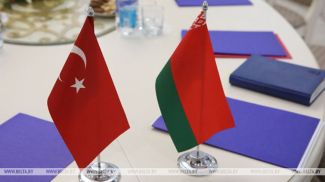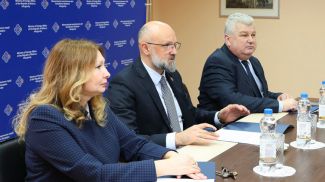MOSCOW, 2 February (BelTA) – The Collective Security Treaty Organization (CSTO) is alarmed by the ongoing military buildup in Europe and the confrontational path chosen by the Nato, Secretary General of the CSTO Stanislav Zas said at an online press briefing on the military and political situation in and around the CSTO's area of responsibility, the CSTO's activities in 2020 and the goals for 2021, BelTA has learned.
“If we talk about regional security, the continuing military buildup in Eastern Europe is ringing alarm bells,” Stanislav Zas said. He stressed that these assessments and apprehensions are not far-fetched. According to him, Europe's military expenditure increase was three times bigger than the increase in the global defense spending in 2020.
“This raises rhetorical questions: will the enlightened Europe be proud of such a leadership? Will it keep it up? Are we going to realize that there are more effective and less expensive ways to ensure the security of the continent where we live? This can be achieved by building trust, strengthening cooperation and interaction between countries and alliances of states, increasing transparency in our relations,” the CSTO secretary general said.
“The Nato's efforts to improve its combat readiness and enhance its forward presence give a cause for concern. The military infrastructure of the alliance is being improved, stocks of materiel, weapons and military equipment are being created in Eastern Europe, close to the borders of the CSTO. The Nato's confrontational path and the unjustified military buildup create a looming danger of a new arms race,” Stanislav Zas said.
The CSTO secretary general stated that the Nato is not scaling down the intensity of its military drills despite the pandemic. “Unfortunately, the Nato does not admit that the chosen course is counterproductive. We see no constructive initiatives or responses to the CSTO proposals on de-escalation, trust building and cooperation. We are forced to take into account the current developments and take adequate measures,” Stanislav Zas added.













